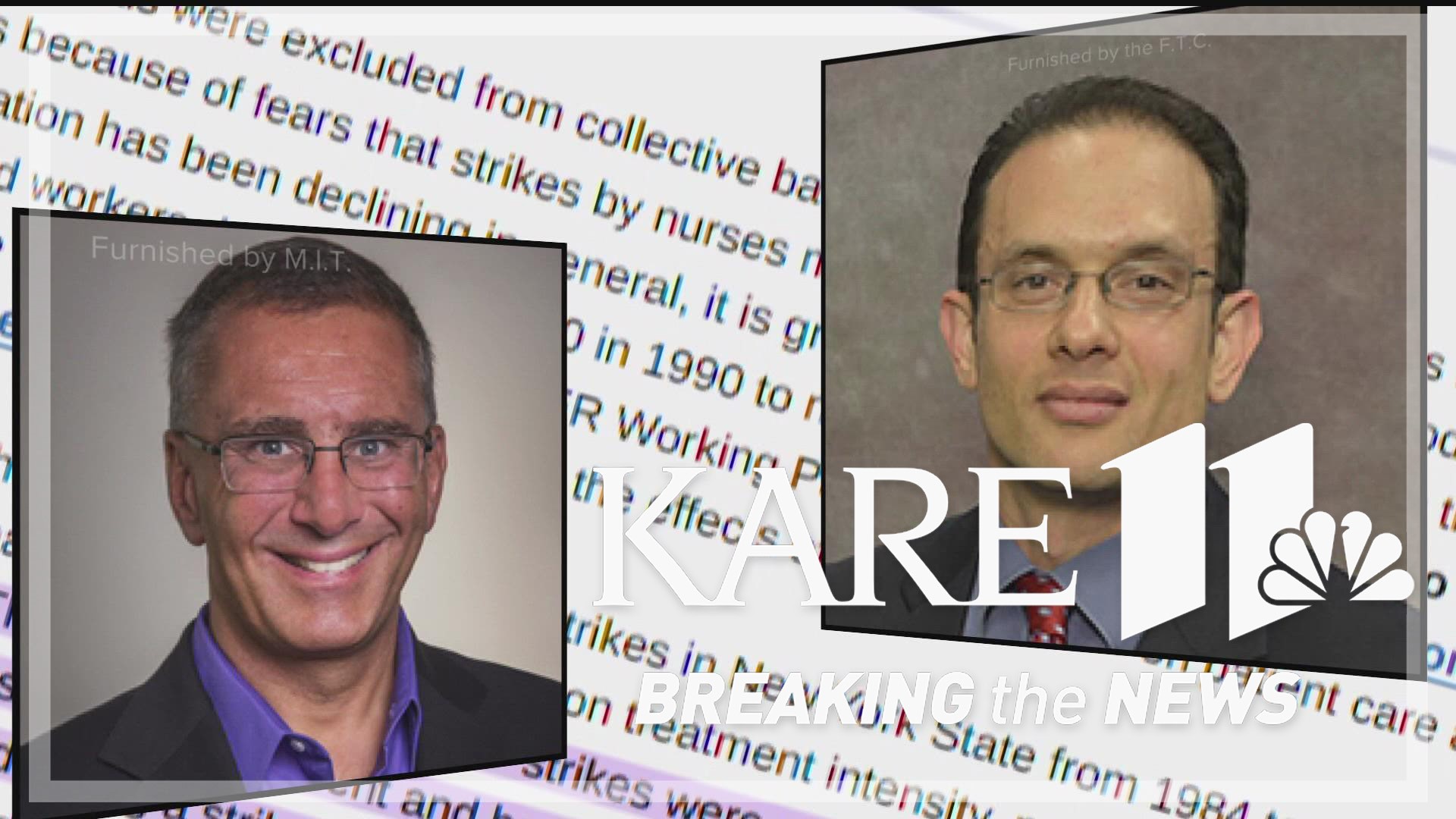MINNEAPOLIS — If anyone was going to look at the intersection of labor and health, it would be someone like MIT Economics professor Jonathan Gruber.
"I focus most of my research on studying the health sector in particular, what drives patient outcomes, and healthcare costs within the health sector and sort of the economics of that," Gruber explained.
Back in 2012, when Gruber co-authored a study with Sam Kleiner called, 'Do Strikes Kill? Evidence from New York State,' he said he was fascinated by what was happening in New York and wanting to answer one question.
"What does it mean for patients when nurses go on strike?" Gruber said. "And we realized that by studying data from New York State because it was A, a place with a lot of nurse strikes, and B, had excellent data on hospitals that would allow us to identify the patients that were admitted during the nurse strikes."
Gruber said they compared that data to patient information that was available before and after the strike.
"When nurses are on strike, patients do a lot worse," Gruber said. "We estimated that the rate of in-hospital mortality was at 18% higher when nurses were on strike, compared to before and after those nurses were on strike, and compared to other hospitals where the nurses didn't go on strike."
Another metric featured in the study is hospital readmissions. Readmissions meaning if a person were to be readmitted to the hospital for the same problem within 30 days.
"A successful hospital stay should not result in you being readmitted to the hospital," Gruber said. "We often use in health economics -- the field I specialize in -- we often use hospital readmissions as a measure of bad quality. So we've got about 6% of hospital readmissions as well."
The paper also looks into the presence of replacement workers as well.
"We found that early in the period, temporary workers didn't seem to do any good, but later on temp workers seemed like they were doing a better job replacing other nurses," Gruber said.
Leading to the conclusion that while replacement workers "do not significantly alter the finding of worsening outcomes during the strikes, they do not noticeably improve the quality of hospital care during a strike."
As for why there hasn't been such a study like this one in the past decade, Gruber said it came down to the data.
"It' not clear how you can do it -- a lot better, not to brag," he said. "It's just that we really had the best data. So I guess one thing in economics as opposed to real sciences, is there's not a huge value placed on replication or extension on previous work. the value academically you get, is for new ideas, so the incentives weren't really there to follow up. So I think it's not surprising we really didn't follow up."
Watch more Breaking The News:
Watch all of the latest stories from Breaking The News in our YouTube playlist:

